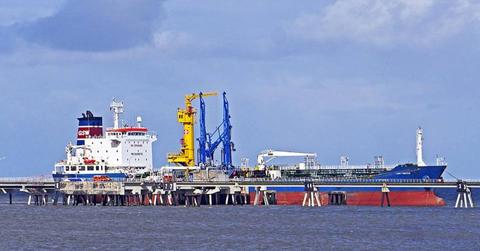China’s June Data Impact the Crude Tanker Industry
China (FXI) released its key economic data for June—import and export data, auto sales data, and the manufacturing index.
July 27 2018, Published 11:55 a.m. ET

China’s June data
China (FXI) released its key economic data for June—import and export data, auto sales data, and the manufacturing index. The data help investors assess the crude oil tanker industry’s outlook.
China’s impact
China, which has the second-largest economy in the world, has a significant impact on the crude oil tanker industry. China imports 60% of the oil that it needs. Most of the oil is imported by sea using crude oil tankers, especially VLCCs (very large crude carriers).
Navios Maritime Midstream Partners (NAP) operates six VLCCs, while Tsakos Energy Navigation (TNP) operates three VLCCs. DHT Holdings (DHT) has 27 VLCCs. Nordic American Tankers’ (NAT) fleet doesn’t have any VLCCs.
So far in 2018, we have seen a distinct trend. China’s oil production is falling, while its oil demand is increasing. The trend is expected to continue into 2019. The trend should increase China’s oil imports, which benefits crude oil tankers.
China is the largest manufacturing hub in the world. A country’s oil demand is related to its manufacturing activities. Higher manufacturing activity translates to higher oil demand, while higher oil demand means higher tanker demand.
A country’s oil demand is closely related to its gasoline demand. China is a leading car manufacturer. In many ways, China is the key country for the tanker industry.
Series overview
In this series, we’ll discuss how China’s crude oil imports fared in June. We’ll also gauge China’s oil demand through the manufacturing industry’s performance and auto sales in June.
